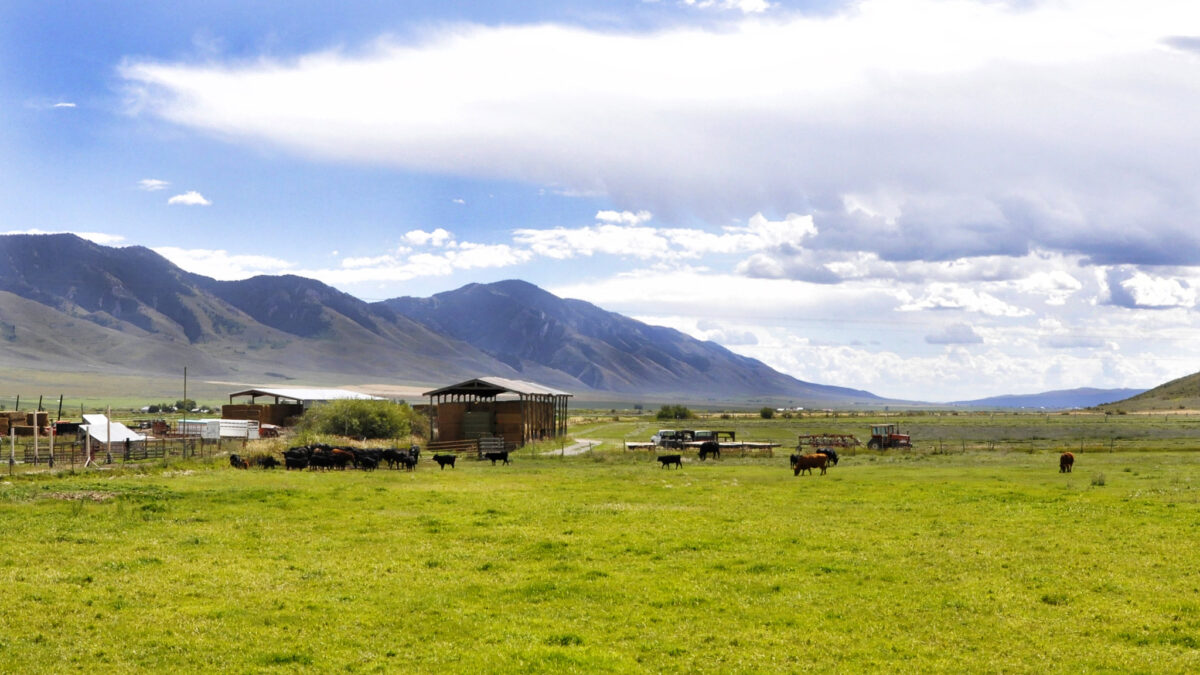More than a dozen Republican senators are demanding the Bureau of Land Management (BLM) reconsider its proposed Public Lands Rule unveiled in March. If implemented, the new rules threaten to undermine “multiple use” land requirements and lock up taxpayer property from grazing or development.
On Thursday, the coalition of 16 GOP lawmakers, all representing states west of the Mississippi River, penned a letter to BLM Director Tracy Stone-Manning to warn about the consequences of the far-reaching proposal.
“The proposal creates a framework for ‘conservation leases’ without authorization from Congress,” the senators wrote. “The proposal specifically notes that ‘BLM shall not authorize any other uses of the leased land’ that it determines are ‘inconsistent’ with this new framework.”
The BLM proposal unilaterally jeopardizes the multiple use mandate established by Congress in the 1976 Federal Land Policy and Management Act (FLPMA). The long-standing doctrine stipulates public lands must be available to “best meet the needs of the people,” via a variety of purposes from recreation to timber harvesting.
The new agency regulations, lawmakers note, threaten to interrupt “the successful balance of other responsible uses from hunting and grazing, to energy development and recreation.”
The BLM manages 245 million acres of public property, more than 90 percent of which lies in Western states. Although the proposed Public Lands Rule would predominantly affect rural residents who use federal land, the BLM announced in-person public hearings on the new rules in urban centers such as Denver, Reno, and Albuquerque. Not one state with a single Republican senator is slotted to host BLM officials over the proposed framework.
[READ: In Tour Promoting New Rule, Bureau Of Land Management Ignores GOP Mountain States It Would Hurt Most]
Idaho’s four-member congressional delegation wrote a letter to the BLM last week recommending the agency recalculate its public hearing schedule.
“As the Bureau of Land Management (BLM) considers a major shift in the longstanding and well understood multiple-use approach of federal land management, we are discouraged to see Idaho was not listed as one of the sites for in-person public meetings,” they wrote. “Further, we were disappointed to see not only was Idaho not included, but the in-person locations are geographically concentrated away from many of BLM’s constituents.”
The new framework threatening to cut off grazing rights appears to come straight from the BLM director’s 1992 graduate thesis. In 2021, Director Stone-Manning was among President Joe Biden’s most controversial nominees. While criticism largely focused on her role in tree spiking, a popular form of ecoterrorism in the early 90s, Stone-Manning also advocated population control and designed ads critical of grazing on public lands.
“It is overgrazed. Most likely, the grasses won’t grow back, because the topsoil took flight,” Stone-Manning wrote. “Worse still, the government encourages this destruction. It charges ranchers under $2 a month to graze each cow and its calf on public land — your land.”
[READ: Biden Land Management Nominee Is An Ecoterrorist Who Demanded Chinese-Style Child Cap]
Now under Stone-Manning’s leadership, the BLM is taking action that would fundamentally reshape how public lands are managed — to the detriment of ranchers, who are the original conservationists.
“This new leasing regime opens the door for a new, noncompetitive process designed to lock away parcels of land, with no limits to size, for a period of 10 or more years,” Republican senators wrote Thursday. “It’s clear that anti-grazing and anti-development organizations would abuse this tool to attempt to halt ranching and block access to our nation’s abundant energy reserves located on public lands.”
If implemented, the new rules are likely to face a court challenge. In June, the Supreme Court narrowed the scope of authority for federal agencies to bypass Congress with wide-ranging rules and regulations drawn up by unelected bureaucrats.
David Bernhardt, a long-time administrator who previously served as secretary of the Interior under President Donald Trump, outlined the consequences of West Virginia v. EPA in his new book out last week.
“The bottom line,” Bernhardt wrote, “is that if the federal judiciary pays homage to the West Virginia decision, it will likely mean that the people will make the rules through their elected representatives — not federal bureaucrats.”









